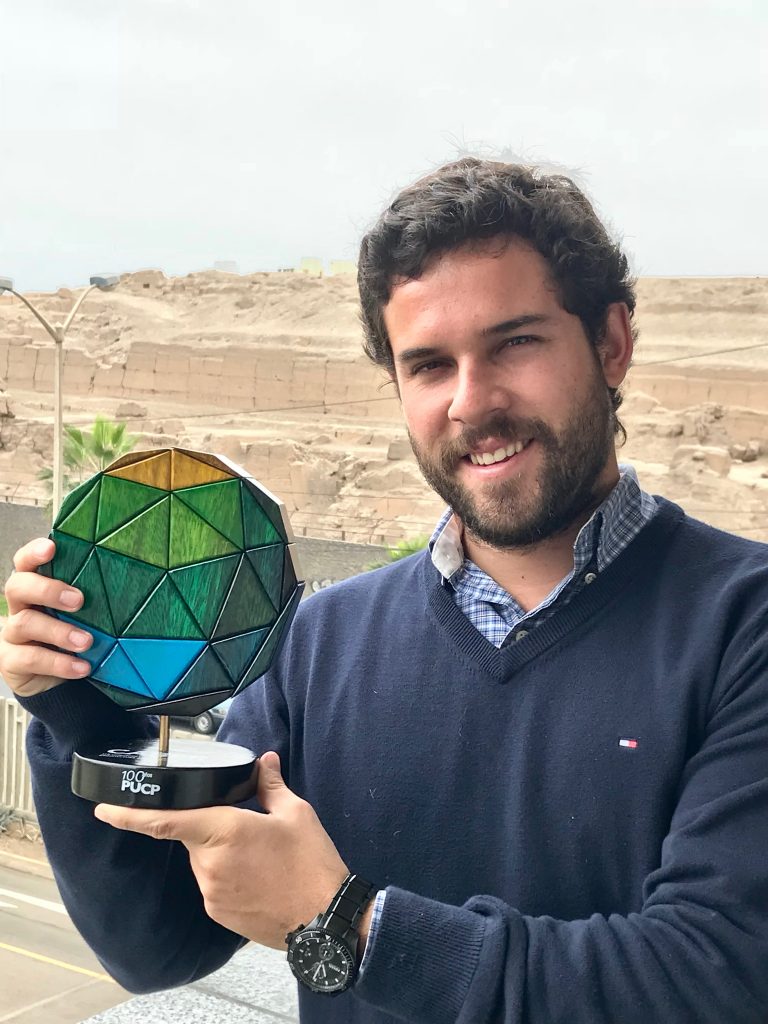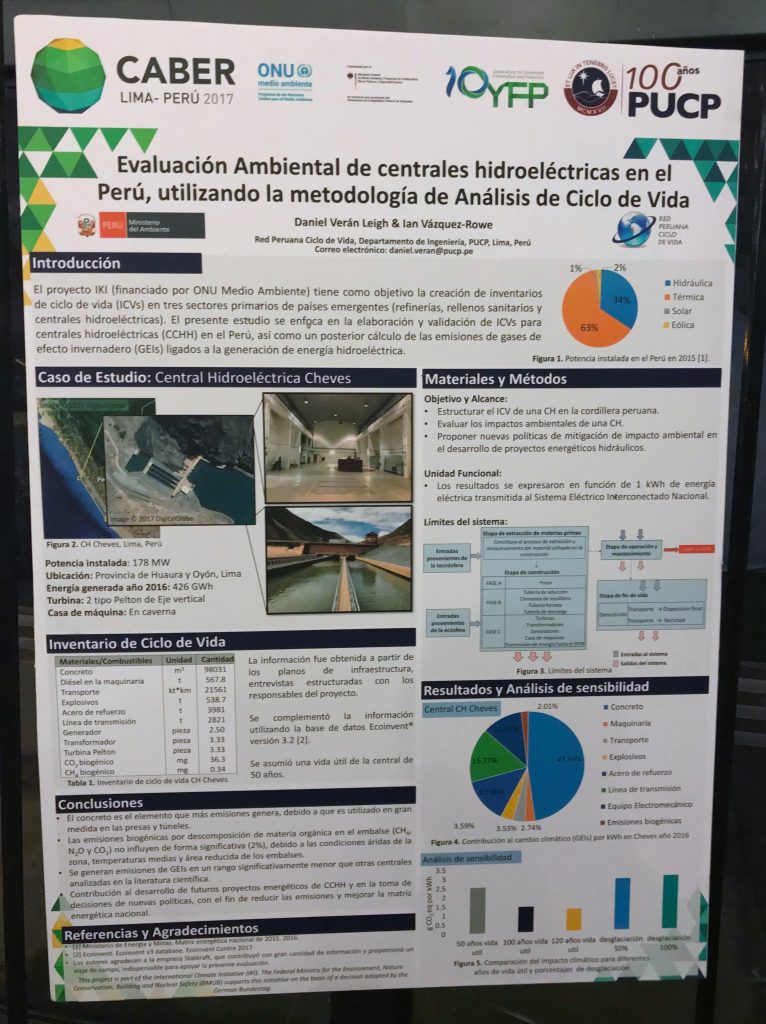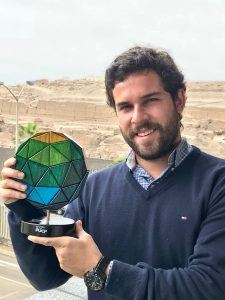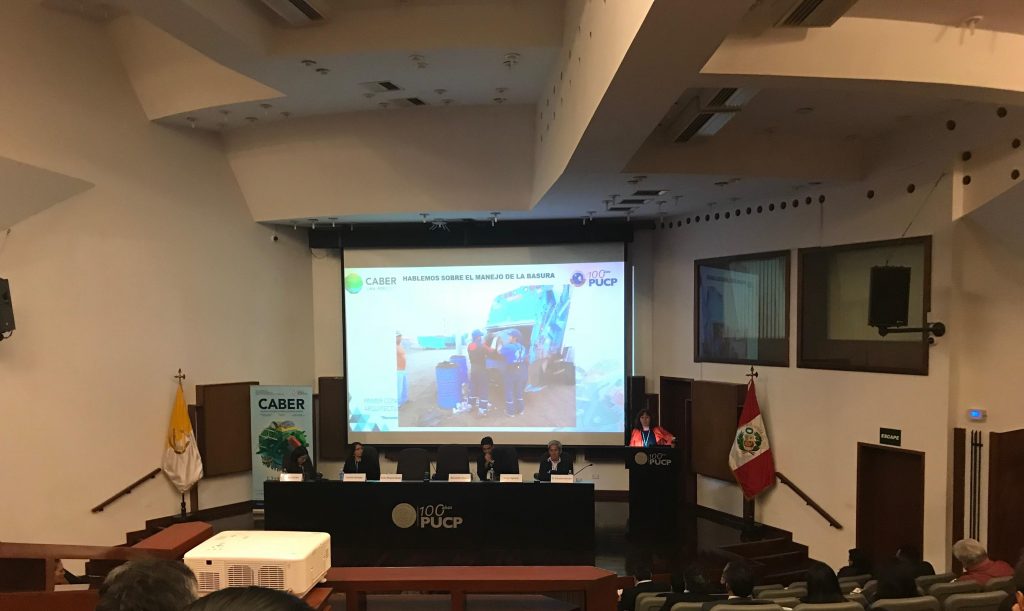
Photo: Daniel Verán – one of the winners of the scientific poster contest
In the week of 02 to 04 of October 2017, the CABER congress was held at the Pontifical Catholic University of Peru (PUCP); oriented to researchers, teachers, students of the specialties of engineering, architecture and related social sciences in the field of social, economic and environmental development of Peru. As part of the constant training provided to our research assistants, Daniel Verán was presented at the congress and Kurt Ziegler and Eduardo Parodi as assistants representing the Peruvian Life Cycle Network (RPCV) as assistants. Speakers of high national and international level were introduced who touched in depth the problems that have been presented in Peru by a series of natural phenomena (huaycos, frosts and droughts) that have generated significant economic and human losses, affecting a considerable amount of inhabitants, mainly from vulnerable communities. For this reason, the conference focused on the presentation of sustainable solutions to climate change, the reconstruction of Peru and the improvement of the quality of life of communities located in areas with abrupt climatic characteristics and that lack access to water, light , drain and hot stove.
On the other hand, the congress was subdivided into three sectors. The first focused on the presentation of projects that investigate the development of technologies that take advantage of renewable energies, this includes the implementation of solar panels for each region of Peru, the construction and development of hydroelectric projects and the expansion of the portfolio of projects wind generation in the north and south of the country. On the second day the topic of sustainable reconstruction was presented, the presentations focused on the accelerated and disorganized urban and rural growth of Peru, which has caused several communities to be affected by the phenomenon of the child that occurred at the beginning of 2017, proposing new solutions based on experiences and research aimed at promoting planning processes and urban and rural planning. Finally, on the third day, the theme was oriented to the political sector and the generation of new policies related to the promotion and use of renewable energies as social inclusion.
Finally, a scientific poster contest was held within the development of the congress. In this, several investigations were presented (35) related to the three themes presented by the CABER. Leaving the name of the RPCV high, one of the winners of the contest was our research assistant Daniel Verán with his poster on the “Environmental assessment of hydroelectric power plants in Peru, from the Life Cycle Analysis methodology.” In this, the inventories and results of the evaluation of the study for a hydroelectric power station greater than 100 MW located in the sierra were presented.
 |
 |
